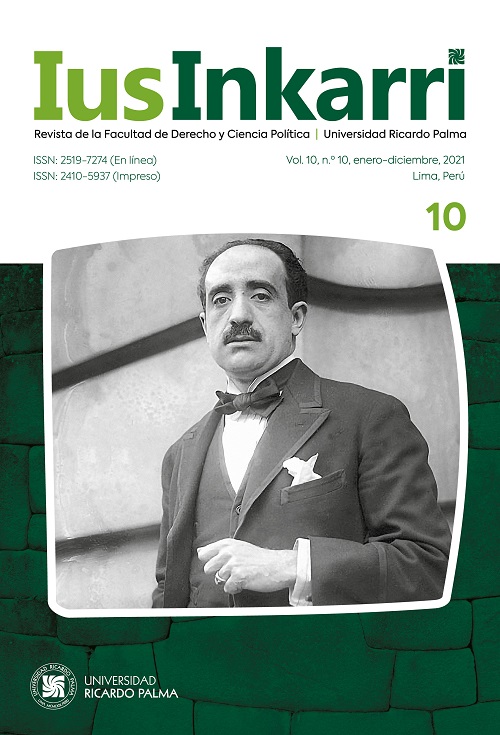Criminal law and organized crime: An analysis from the perspective of Niklas Luhmann's systems theory
DOI:
https://doi.org/10.31381/iusinkarri.v10n10.4639Keywords:
criminal law, organized crime, Niklas Luhmann’s systems theory, corruptionAbstract
This research takes up the vision of the German jurist Niklas Luhmann on the self-referentiality of systems; however, it places greater emphasis on the autopoietic systems aspect. The aim of this article is to demonstrate how the effective applicability of the legal-criminal norm can combat corruption in Mexico, rescuing the democratic state and through the evaluation of the proposals by the current administration, contained in the Development Plan 2019-2024.
Downloads
References
Escalante, F. (2015). Historia mínima del neoliberalismo. El Colegio de México.
Jakobs, G. y Cancio Meliá, M. (2006). Derecho penal del enemigo. Thomson Civitas.
Padilla, L. X. (2015). Delincuencia organizada, lavado de dinero y terrorismo: el derecho penal del enemigo y la restricción de los derechos humanos en el neoliberalismo jurídico mexicano. Flores Editor.
Ramírez, S. (coord.). (2019). Los mexicanos frente a la corrupción y a la impunidad: perspectivas y prospectivas 2019. Mexicanos Contra la Corrupción; Unidad de Investigación Aplicada.
Downloads
Published
How to Cite
Issue
Section
License
Copyright (c) 2021 Eduardo Daniel Vázquez Pérez

This work is licensed under a Creative Commons Attribution 4.0 International License.













